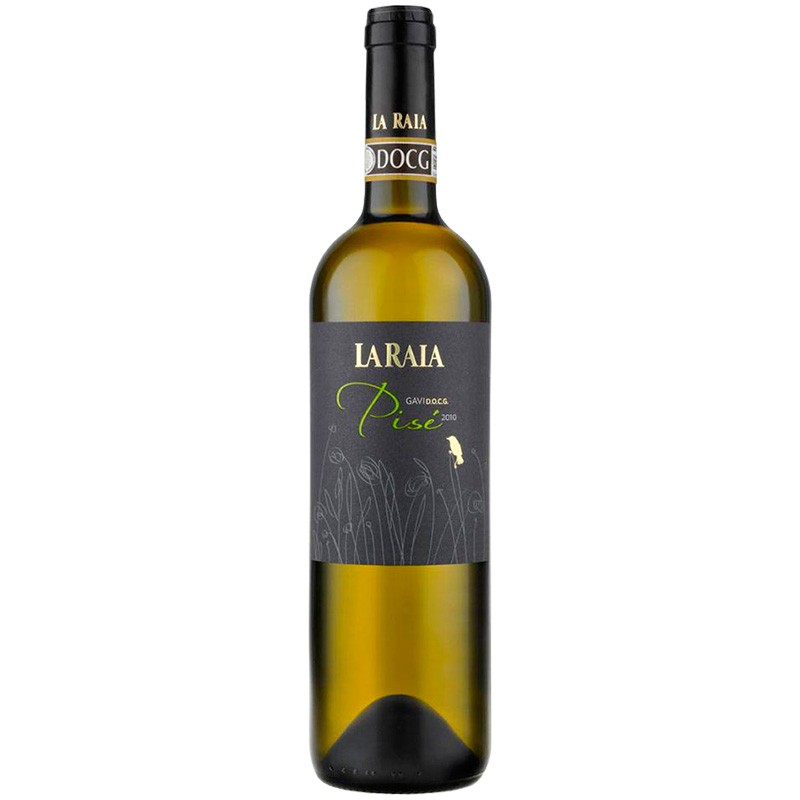



White wine with brilliant light straw yellow color, with slight greenish hints.
The aroma it’s broad and intense, with complex feelings and flower notes, accompanied by ripe fruit, pear and honey.
In the palate it’s a white wine very rich, warm and harmonic, with a moderate, but present, acidity, justly savoury and with a persistent, warm finish.
Excellent with all seafood, which compliments its saltiness and fleshy delicacy. It is the perfect match also for vegetable risotto and medium aged cheese.
We recommend that you enjoy this wine at one temperature between 11° and 13° C.
ALCOHOL CONTENT: 12.5%

Delivery: 2 to 6 weeks

Delivers all over the world by truck, air and sea. In LCL or full container.

Shelf Life / Products Validity: We always deliver with the maximum validity.
The best expression of the farm’s philosophy. It surprises for its longevity and its nose evolution during the first days after opening: a continuous discovery of scents which are released in time.
Vineyard over 70 years old located approximately 400 meters above sea level on a south, south-west exposed promontory, particularly suited for farming of the indigenous Cortese vine variety. The well drained, sandy and loose soil limits the vegetative vigour, the production of the vines and it allows obtaining extraordinary quality grapes. As for the biodynamic principles the vineyards are only treated with moderate quantities of sulphur and copper. The cure of the soil aims to the best microbiological and nutritional balance, granting a deep fertility.
The grapes present a good aromatic complement, an important sugar and acidity and conditions necessary to produce a great white wine of remarkable pleasantness.
Grapes are selected on the branch and handpicked after the second half of September, before undertaking a soft pressing. The static decantation of the must is done without any oenological additives and happens at a low temperature. The moderate contact with the oxygen and the care devoted to all the transformation phases exalt the original features of the vine and the terroir. The alcoholic fermentation lasts approximately 20/25 days, at a controlled temperature. The wine is left on native yeasts in stainless steel tanks for 20 months before being cold stabilized and then bottled. The prolonged period on the lees makes this wine long-lived, and able to evolve even when uncorked and again in the glass.
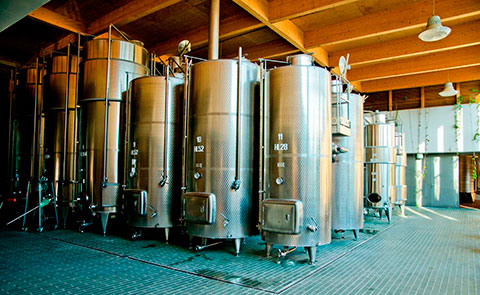
Evolution after uncorking
Once the bottle is opened the wine will preserve for 4/5 days. During this period of time we can notice a very slow evolution, passing from fruity and floral notes to mineral and citrus notes.
COLOUR: brilliant light straw yellow, with slight greenish hints.
AROMA: broad and intense, with complex feelings and flower notes, accompanied by ripe fruit, pear and honey.
MOUTHFEEL: very rich, warm and harmonic, with a moderate, but present, acidity, justly savoury and with a persistent, warm finish.
ALCOHOL CONTENT: 12.5%
Perfect storage
If stored in a cool dry place, and in the dark, at 10°/18° C, bottles keep unaltered for 6/8 years.
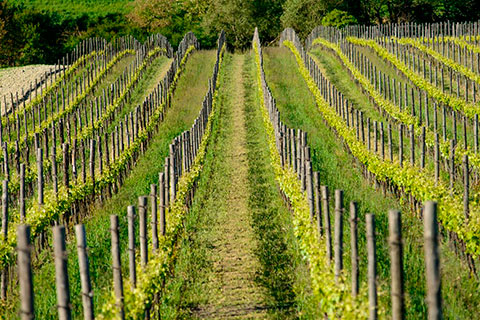
At our farm we follow the biodynamic approach, not only dispensing with fertilizers, pesticides and herbicides, but also using the soil and its vital resources in a careful and responsible way.
The traditional agriculture uses fertilizers, instead: plants are nourished with soluble food which roots absorb passively, thus vines lose their identity and the relationship with the soil therefore uniform all flavours and characteristics of their fruits. Biodynamic treatments are a way of harmonizing the farm and the universe’s creative rhythm.
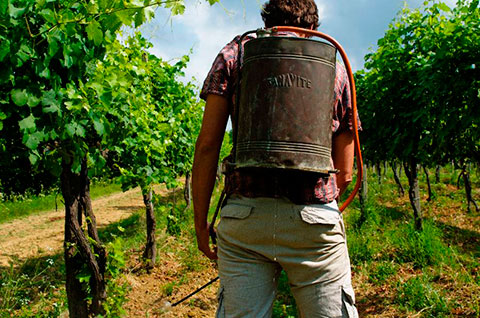
At our vineyard we use two spray preparations, the horn manure and the horn silica, which influence the dynamics of the vegetal growth, improving the quality of our grapes and crops. Both preparations are mixed up in water for one hour just before use.
The blending starts by spinning in one direction, creating a deep whirlpool in the barriques. The direction is then changed and blending continues until a new whirlpool is created. Mixing up small doses of material in large quantities of water is called “dynamization”.
Biodynamic farm with Demeter certified since 2007. It is one of the 47 wine certified companies in Italy.
For over half a century the international Demeter trademark has been granting the correct implementation of the biodynamic principles to cultivations and food productions all over the world. Controls on the conformity to such principles and to the provided procedures are constant.
In particular, as far as wine is concerned, Demeter certification attests not only the quality of grapes, but also of all the processes of winemaking and of the winery itself. The commitment to the respect for nature goes thus throughout the entire productive process, to deliver to consumers a biodynamic wine, peculiar expression of the terroir and exclusive product of nature’s will.
Winery distinguishes for its exclusive biodynamic piedmont wine production which highly respects the international certification criteria.
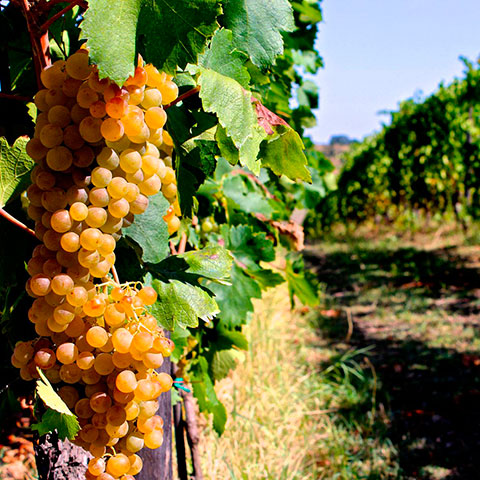
Cortese is a white grape variety that is most famous for its role in the crisp, lime-scented wines of Gavi. The variety is known for its bracingly high acidity and its ability to retain freshness, even when grown in hot environments. Apple, peach and honeydew flavors are commonly associated with Cortese wine, with lime, almond and light herbal or grassy aromas.
The variety has been grown in the southeastern part of Piedmont for hundreds of years, and is mentioned in documents that date back to the beginning of the 17th Century. It has long been considered as Piedmont's finest white variety and is often credited as introducing the world to Italian white wine. Nowadays, however, it has been usurped somewhat by Arneis and Moscato d'Asti.
Cortese must be watched carefully in the vineyard to ensure success: it is a vigorous, productive vine and if yields are not kept in check then the wines can be bland and lacking in character. Ripeness is another key issue – while it does well in Gavi's warm environs, it can struggle to ripen fully in other parts of Piedmont. This leads to wines with almost unmanageably high acidity, which is why Cortese is used more often as a minor blending grape outside of its home town.
Some producers use malolactic fermentation to mitigate the variety's high acidity, but it is usually produced in a crisp, dry style. High acidity can be useful to growers as well – Cortese is sometimes used to make sparkling wines.
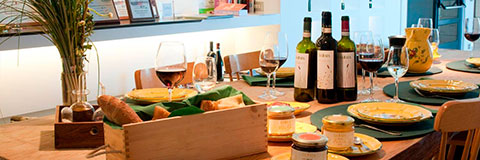
Data sheet